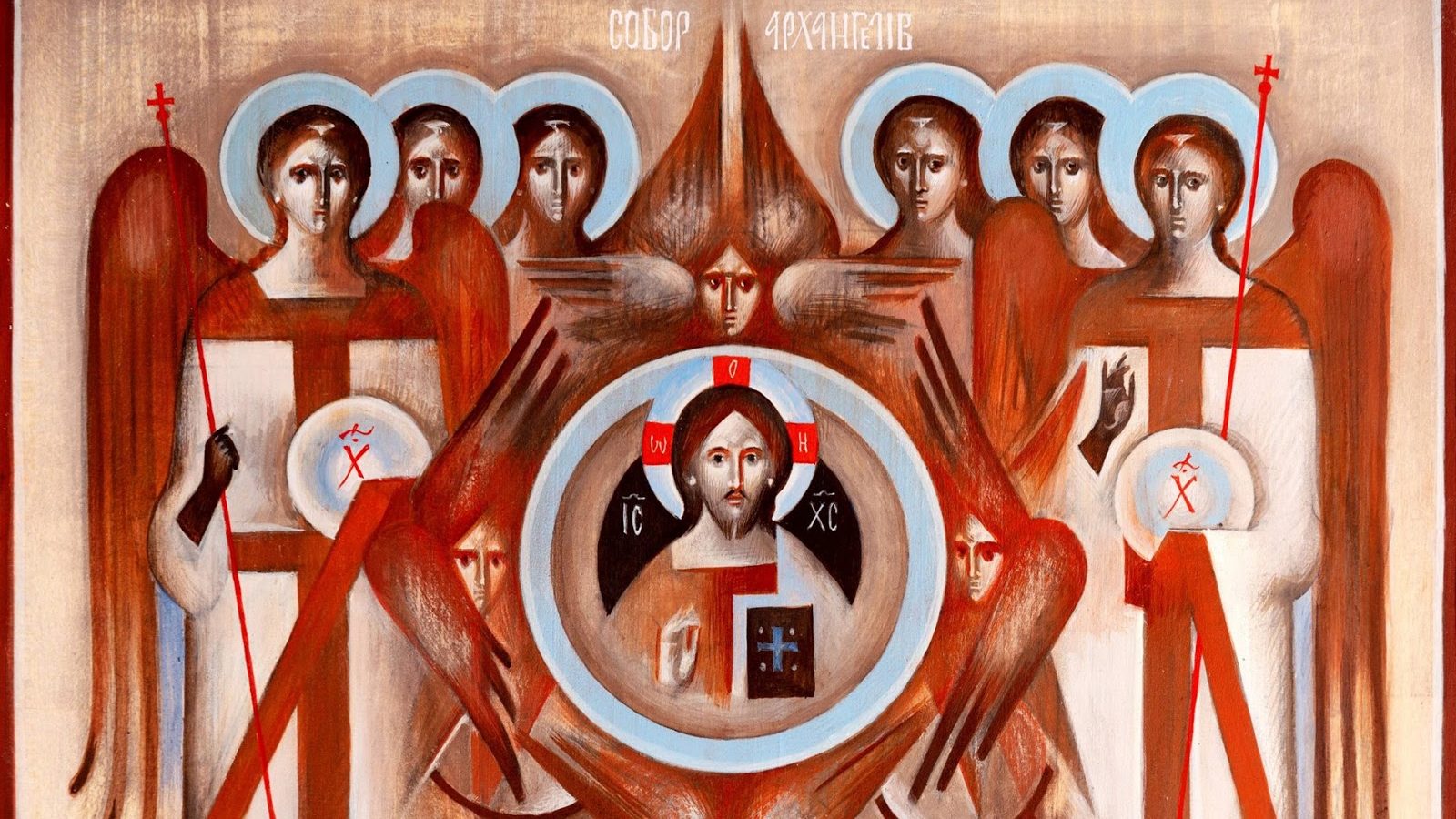Seven Facts About Angels
Feast of the Archangels Michael, Gabriel and Raphael
What do we know about angels? Not much. Anyone who tells you that they are an expert on angels or demons is lying or misguided. There are no experts on angels because there is so very little we know about them. Here are seven things we do know.
- Angels are real. Scripture and Tradition attest to this. Jesus mentions angels in today’s gospel reading (Jn 1:51).
- Angels don’t look like chubby babies or handsome men with wings. They are pure spirit and have no bodies, but they can manifest themselves to us in different ways, sometimes appearing as human beings. Most of the time they go unseen by us.
- “Angel” is the name of their office, not their nature. Their nature is spirit. “Angel” means “messenger.” We see them most often in scripture delivering messages from God. This is why they are depicted in art as having wings, to denote their office as messengers. Those who deliver especially important messages are called “archangels.” Fallen angels are called demons.
- We know the names of three archangels. Michael (“Who is like God?”), Gabriel (“Strength of God”) and Raphael (“Medicine of God”). These names are given in scripture. Any other names you may have heard come from apocryphal sources.
- In addition to being messengers, angels also minister to God and they minister to us. They give worship to God in heaven and they assist us on our pilgrimage in this life. We each have a guardian angel.
- Angels are very different from us. They are not departed human souls. Jesus said we would be “like angels” in heaven, but he said this in relation to marriage, that like the angels we would neither marry nor be given in marriage. We do not become angels when we die. Angels are like us in that they have rational minds and free will, but unlike us these faculties are not tied to a physical body, which means they are exercised differently. We learn things through our senses, for example, which are imperfect and can sometimes deceive us. Our knowledge is also limited at any given time and can be flawed. We acquire new knowledge over the course of our lives, which means we can change our minds. But angels don’t have physical senses. They possess what is called “infused knowledge.” This means that they were made by God with all the knowledge that they would ever need. Angels never learn, but they are extremely smart; much smarter than we are. And their will is perfect. They are unwavering. When an angel makes up its mind about something – like whether or not to serve God – it will never repent from that decision.
- Finally, what do angels have to do with us? They are utterly alien to us, and while they are very interesting, we may say, “Who cares?” How does knowledge of angels help us in our faith? Angels are fundamentally agents of God’s will. Angels do the will of God and demons reject the will of God. So we can become either more angelic or more demonic to the extent that we follow or reject God’s will. So angels (and demons) can serve as inspiring examples or cautionary tales. But more importantly than that, angels are our friends and our allies. If angels are real, then so are demons, and they hate us. They are damned for all eternity and their only consolation would be to drag us to hell with them. They can’t harm God, so they settle for hurting who and what God loves, which is us. We are in the midst of a great spiritual battle, but we do not battle alone. We have a host of angels on our side. When we come to Mass to worship, we worship with all the angels. As we go about our day, an angel is always with us. Any time we face temptation, and angel is there to strengthen us, if we ask. In times of stress or sorrow, an angel is there to comfort us. The “so what” about angels is this: we have friends in the faith beyond those we can see with our eyes. Let us not neglect them. Let us never hesitate to call upon them for aid. Let us invoke them in our prayers and let us join in their worship of almighty God whom they serve without ceasing.



